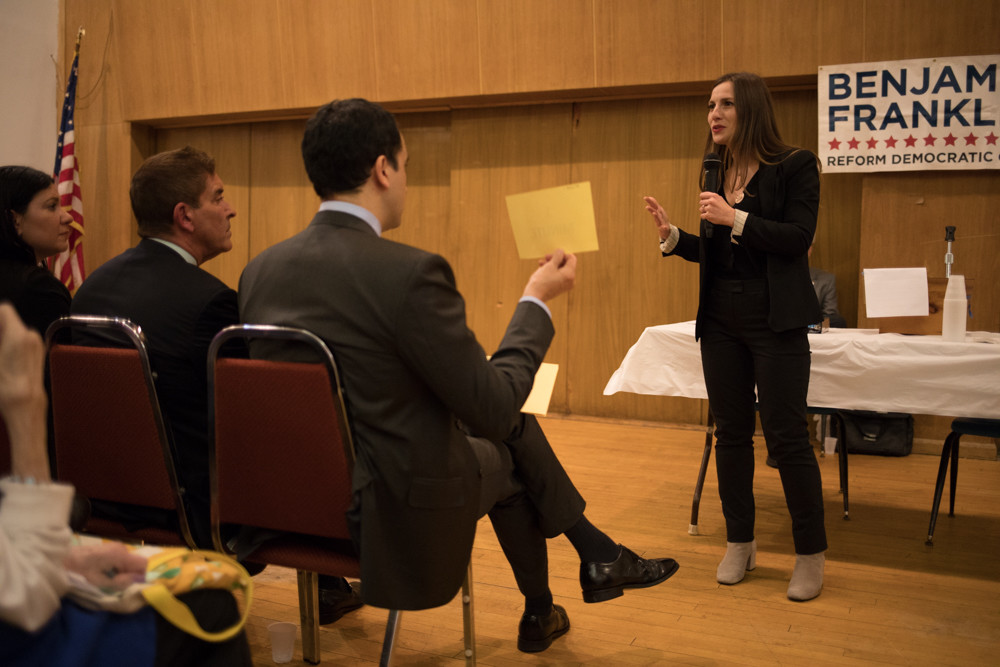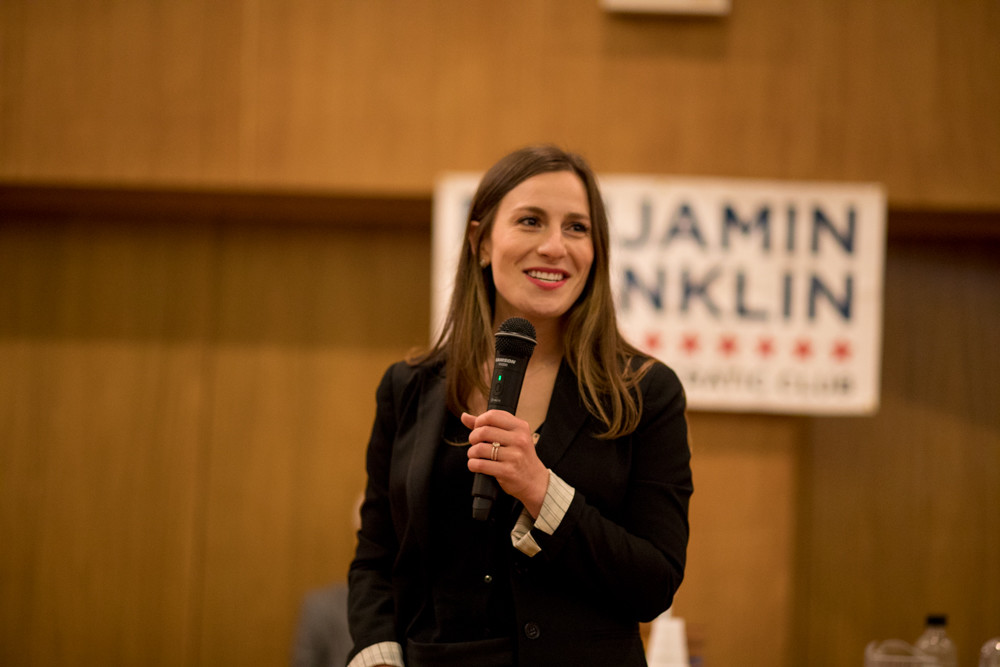Klein’s challenger buoyed by insurgent’s victory on the other side of the borough
Despite what some say is a seismic shift shaking the Democratic Party to its very foundation — the end of an era of party bosses, the erosion of establishment control — state Sen. Jeffrey Klein, a stalwart of the Democratic machine, doesn’t appear to be worried.
But he probably should be, said Alessandra Biaggi, who’s challenging Klein in September’s primary.
In light of the stunning upset victory of Alexandria Ocasio-Cortez — a 28-year-old activist and Bernie Sanders supporter running on a shoestring budget and unapologetically liberal platform — over 10-term incumbent Joseph Crowley in New York’s 14th congressional district in the June 26 primary, some political experts say Klein could be next.
Whether they’re right remains to be seen. But if nothing else, Ocasio-Cortez’s victory has emboldened the groundswell of progressive support fueling Biaggi’s campaign.
“It shattered, in many ways, the cynicism that first-time candidates often run up against,” Biaggi said. “The idea of, ‘It’s always been that way, and it will never change.’ That rhetoric was absolutely changed, in a very big way, and it shows that” defeating an entrenched incumbent “can be done.”
While Ocasio-Cortez’s win may have shocked observers on both sides of the aisle, it didn’t come as a complete surprise to Biaggi.
“There is definitely a feeling of the establishment, so to speak, being out of touch with what people feel and what they want,” she said. “It’s something people have been feeling for a while. People want leaders who are not embedded in a system,” that prevents them from being able to “truly lead without strings attached.”
That’s not the case for Klein, Biaggi said.
“He doesn’t actually consult the public,” Biaggi said, citing the reproductive health act, affordable housing and public school funding as issues on which Klein has come up short for her when it comes to looking out for the best interests of those he represents.
“This district is owed $88 million in public school funds,” according to Alliance for Quality Education, Biaggi said. “And yet, we don’t see him fighting for that. What can we say about ourselves if we don’t stand up for a better future for our children, or at least an equal future for our children?”
Even if Ocasio-Cortez’s victory is a sign of progressive discontent — and grassroots power to unseat a “machine” incumbent — Klein sees his upcoming race with Biaggi as no different than any other.
“I take every race seriously,” Klein said.
“The residents of the 34th senate district know me personally. This is what I do, seven days a week, whether I was in the Assembly or the state senate. I’m very in touch with my constituency, and I always will be.”
Getting things done
Klein points to his legislative accomplishments as a testament to that.
“What I’ve done over the years, is, I think, have an accomplished record of getting things done in Albany, which my constituents believe in, as well as delivering for my district in the form of money for programs that help each and every one of my constituents,” Klein said, from improving parks, to paid family leave, to raising minimum wage, to other infrastructural upgrades.
Before jumping to conclusions about similarities between the challenge Crowley faced from Ocasio-Cortez and the one Klein faces from Biaggi, the senator pointed to what he considers a key difference.
“Joe Crowley’s approach was not hands-on like my approach,” the senator said.
“Joe Crowley played the Washington angle. He was hoping to become Speaker someday. And in the process, he somehow lost touch with his constituency. Crowley was not the same presence in the district,” which overlaps with Klein’s, “that I’ve always been over the years. I’m very comfortable in what I do and how I service my constituents.”
Yet, some political experts see Ocasio-Cortez’s victory as a sign of a bigger crack in the façade of the Democratic establishment.
“First and foremost, I think at the core, (Ocasio-Cortez’s) victory is a reflection of the weakness in leadership within the Democratic Party establishment,” said Jaime Dominguez, political science professor at Northwestern University.
Not addressing issues
For too long, Dominguez said, Democratic leadership has failed to speak to the issues that matter most to a growing, young, energetic coalition — the kind of fresh blood Biaggi represents.
“The issues that matter to young folks,” Dominguez said, “health care and voting rights, and immigration reform. I think there’s a sense the party’s become just too entrenched, and the lack of leadership, the lack of direction, which is going to be a challenge for Democrats in these elections coming up in November. Bread-and-butter issues are just not resonating, and I think there’s a sense that the leadership is not being as proactive as these millennials would like.”
Regardless of whether Biaggi unseats Klein, what’s at stake, Dominguez said, is much greater than this particular battle.
“It’s the opportunity to crack his leadership, to crack his hold on power,” Dominguez said. “Just like with any of these new emerging candidates, the victory might not necessarily be the election (itself), but rather just the weakening of that elected official that, in this case has been protected by the establishment.”
Still, Biaggi is revving up the fight, with her gaze firmly fixed on victory come September.
“Of course, any race that you run is challenging,” Biaggi said. “But it’s possible.”
And the fact Ocasio-Cortez prevailed against Crowley “just proves that with true determination and passion, and connectivity to the people in the community, you can win.”











